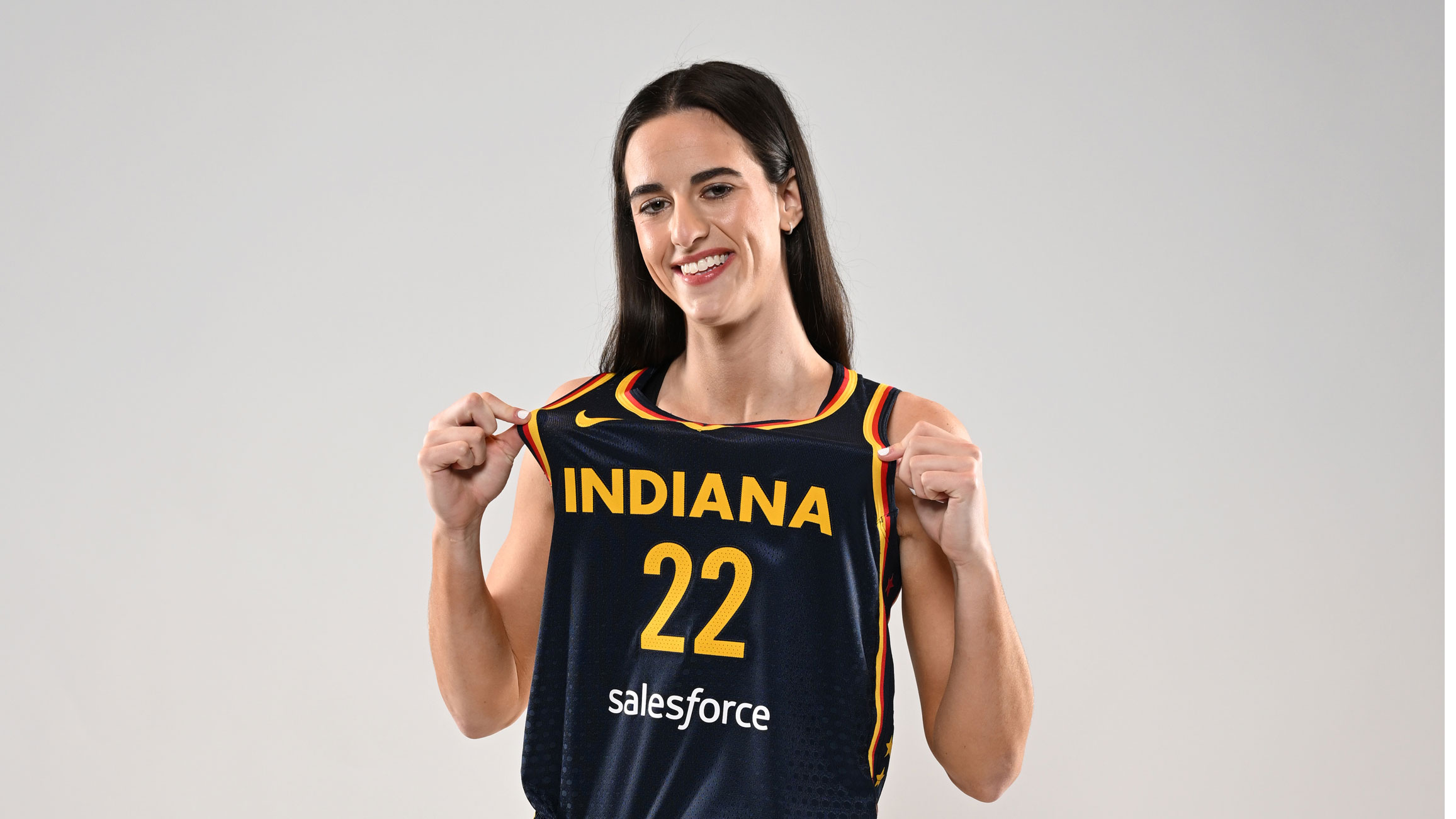Gwen Jorgensen had such a commanding lead at the 2015 World Triathlon Series race in Gold Coast, Australia that she was able high-five fans and perch her sunglasses on her forehead before crossing the finish line.
Sarah True finished 1 minute, 18 seconds later, followed by a third U.S. triathlete, Katie Zaferes. It was the first sweep by U.S. women in a World Triathlon Series race.
But a U.S. flag was raised on only one of the three flag poles as the U.S. women stood together on the podium.
“The rumor was they didn’t even have three USA flags,” Jorgensen said at the time. “Hopefully they’ll get three for next time.”
Sure enough, the same three U.S. women swept the podium seven weeks later in London, and race organizers were ready with three U.S. flags.
It is no longer a surprise to see multiple U.S. women on the podium at World Triathlon Series races. It happened in half of the 10 races in 2015.
“This is a really special moment in USA Triathlon history,” True said.
Sports
In partnership with NBC Sports Philadelphia
True cautions that this special moment may not last forever. She is 34 years old and entering what will likely be her final Olympics. Jorgensen, 30, has not committed to continuing through the 2020 Games.
“We hope that the U.S women’s domination continues for years and years, but we are probably at this little peak right now,” True said. “The rest of the world will catch up, and then a few years from now, we will have another peak.”
No U.S. athlete has stood on an Olympic triathlon podium since 2004, when Susan Williams claimed the first and only U.S. Olympic triathlon medal.
"It's not a sure bet," Williams said, "but between Gwen [Jorgensen] and Sarah [True], I think the probability is quite high that we will get one or two medals."
Gwen Jorgensen
Jorgensen thought her Olympic dream was over in middle school. She had wanted to be an Olympic swimmer since she was eight years old, but as she got older, reality sunk in.
“I kind of realized that dream wasn't going to happen,” Jorgensen said.
While a student-athlete at the University of Wisconsin, Jorgensen attracted the attention of USA Triathlon. She did not even know the difference between an Olympic and Ironman triathlon, and she had never owned a road bike. But she did earn collegiate All-American honors in both cross country and track, and Barb Lindquist, USA Triathlon’s Collegiate Recruitment Program manager, believed Jorgensen could learn to excel on the bike.
Jorgensen made her competitive triathlon debut in 2010. In 2011, she qualified for the 2012 London Olympics.
“I was in shock,” Jorgensen said. “I never thought I was going to qualify.”
She had a disappointing experience at the 2012 Olympics, finishing 38th after suffering a flat tire on the bike. But since then, she has established herself as the dominant woman in the sport, winning world championship titles in 2014 and 2015.
“She has more than raised the bar,” True said. “She is the bar right now.”
Jorgensen won 12 consecutive World Triathlon Series races beginning in 2014.
“She’s basically unbeatable right now,” True said, “but that doesn’t mean it’s not possible.”
Sarah True
True was named the USA Triathlon Olympic/ITU Athlete of the Year in both 2011 and 2012. But in 2013, Jorgensen established herself as the country’s best triathlete.
Since then, True has used Jorgensen’s success as motivation.
“I am the athlete I am right now because of Gwen,” True said.
Jorgensen and True were the only two women to win World Triathlon Series races in both 2014 and 2015. But True’s two wins over those two years both came in races that Jorgensen skipped.
True compared Jorgensen to the New York Yankees, who have won 27 World Series titles, and herself to the New York Mets, who have won two World Series titles.
“I don’t really know if it’s a rivalry,” True said. “I wouldn’t describe it that way, because she has been so dominant the last few years.”
Refusing to be satisfied with the status quo, True left her coach after the 2015 season. Instead of hiring one triathlon coach, she decided to work with a cycling coach and a running coach.
“If I want to race better than I’ve ever raced before in Rio,” True said, “it will take thinking outside the box and breaking down the barriers I’ve set for myself.”
Katie Zaferes
Like Jorgensen, Zaferes is a product of USA Triathlon’s Collegiate Recruitment Program.
And like Jorgensen, Zaferes made the transition to triathlon look easy.
Zaferes was named the 2013 USA Triathlon Elite Rookie of the Year after a standout running career at Syracuse University, where she broke school records in the 3,000m steeplechase and indoor 5,000m.
She had a breakout year in 2015, finishing on the podium in six of her eight World Triathlon Series races.
“She is already getting podiums at the highest level of competition,” Jorgensen said. “It’s incredible.”
Zaferes trained with True during the 2015 season.
“She doesn’t have any weaknesses that can be exploited as a competitor,” True said.



